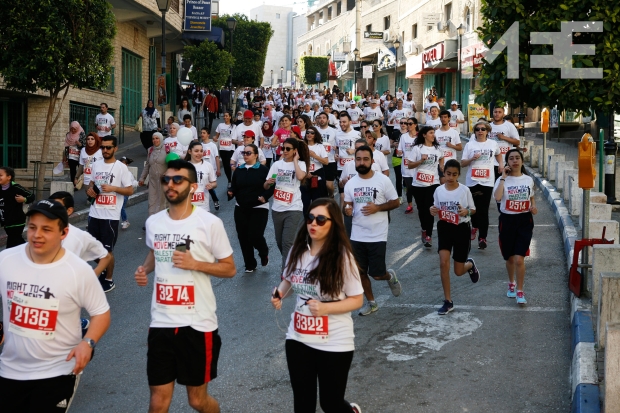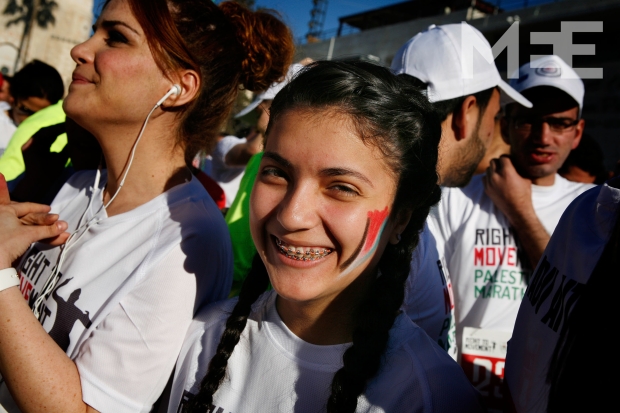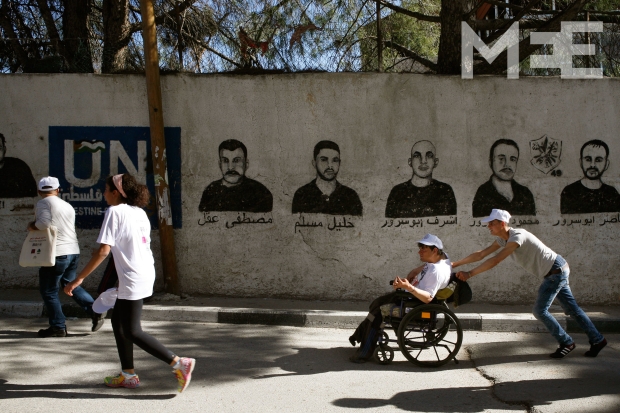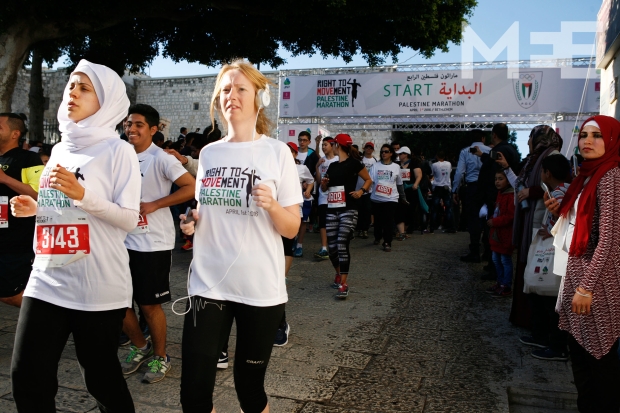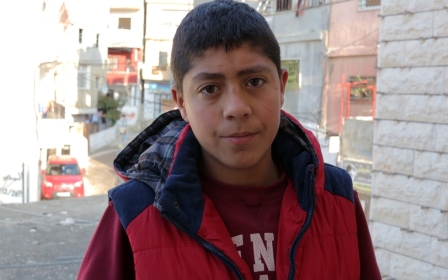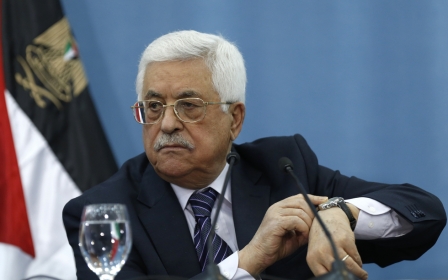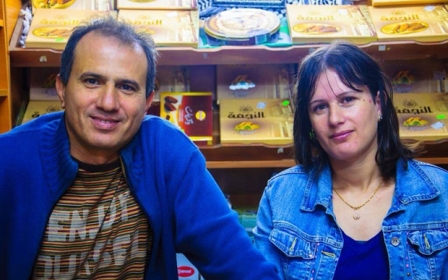IN PICTURES: Bethlehem's 'Right to Movement' Marathon
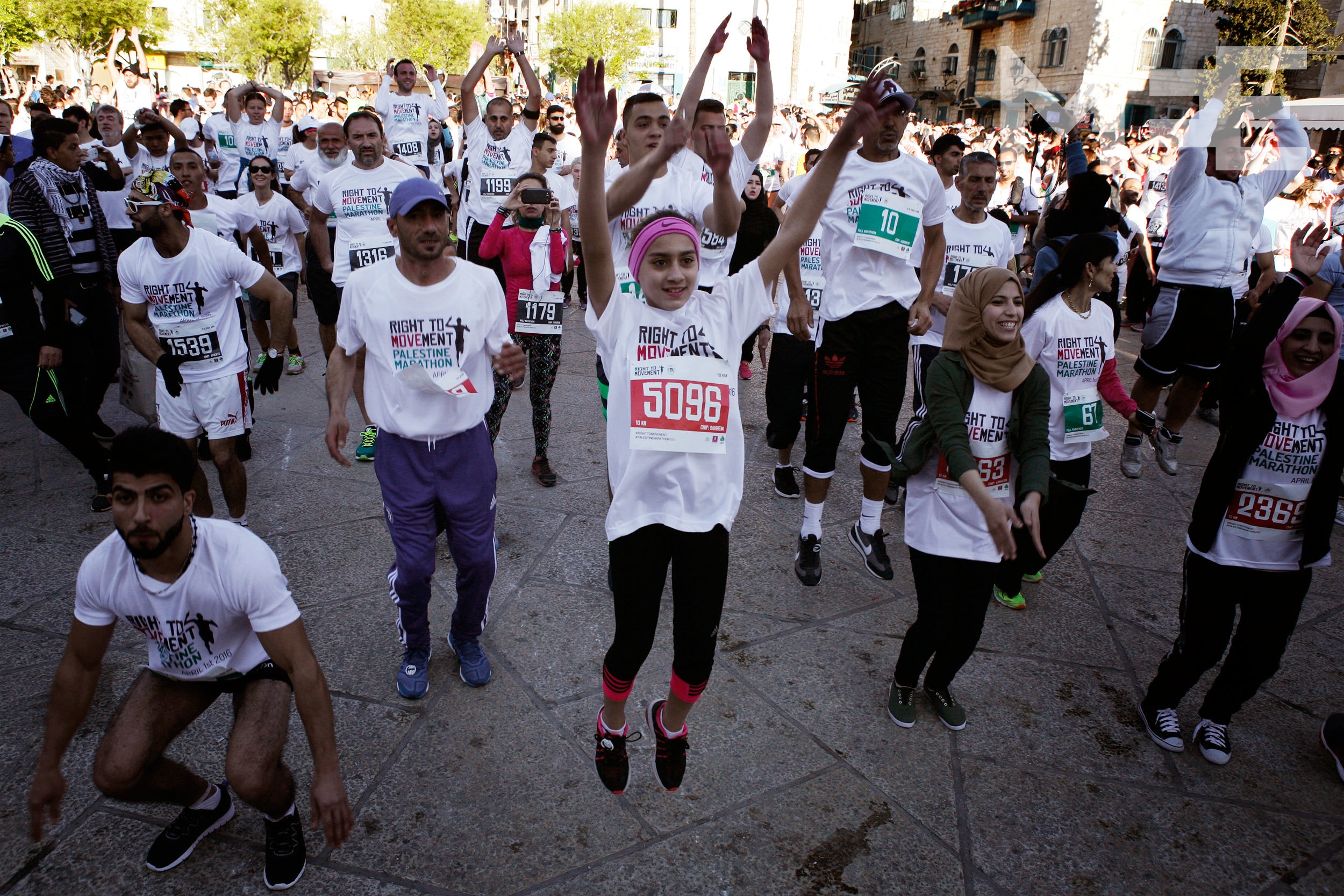
BETHLEHEM, Occupied West Bank - Some 4,400 athletes from all over the world took part in the fourth Bethlehem 'Right to Movement' marathon on Thursday, where runners took over the streets of the West Bank city and tackled distances ranging from 10 kilometres, to half and full marathons.
The annual "Right to Movement" event owes its name to Article 13 of the Universal Declaration of Human Rights, which enshrines everyone's "right to freedom of movement and residence within the borders of each state", as well as the right to leave and return to one's own country.
Israel has severely limited movement in Palestine as a result of frequent checkpoints and settlements, and the marathon itself has been an easy way to explain the negative impact of these imposed restrictions.
In its inception, the event organisers were unable to find a stretch of road running uninterrupted for 42km - since the infrastructure of the occupation, such as the Separation Wall, checkpoints and settlements have blocked the way. This forced them to come up with an unorthodox solution: design a 21km loop that full marathon participants must run twice.
Solidarity marathon
Sitting on a plastic chair by the side of the road in Aida Camp, Bethlehem, Abu Ra'ed surveyed the thousands of runners reaching one of the many points where the route suddenly makes a sharp u-turn and heads back.
"It is great to see so many foreigners coming to run together in Bethlehem," he told MEE. Ra’ed was displaced as a child refugee in 1948 from his home in Ras Abu Ammar.
"They are running for our right to movement, yes, and that's a good thing," he said, content that so many people would travel to his country to make this point, but aware that little would change any time soon.
The reasons behind the participants
Among the runners were also 50 disabled participants. Ra'ed Ahwethi travelled from Nablus to complete the 10km in his wheelchair. For many, he was a sight to behold as he sped through the Bethlehem streets. "This is the fourth marathon I've joined. I'm disabled and I use a wheelchair but I take part in many championships in Palestine and abroad," he told MEE.
Eleven-year-old Noura travelled from Sur Baher, Jerusalem, with her father. "It is something special," Noura's father Mohammed told MEE.
"We are here with thousands of people and it's exciting, not like running by yourself," he smiled as he began to follow a trainer on the stage for the pre-run warm-up.
As loud music pumped through the speakers and the countdown began to the start of the race, 14-year-old Lamar grinned for the camera. "I am here to encourage people to run, look, I am a girl and I am here, it's great," she said as she approached the start line.
Julie, a university student from Denmark, explained that solidarity was behind her choice to participate. "I always wanted to participate," she told MEE. "You have a right to move and be free and it is important to see that so many people have chosen this symbolic way to show that Palestinians should be free."
Others added a creative touch. Mahmud Abu Shamsia, an actor with the Al Basta theatre company, walked the 10km route pushing a portable checkpoint equipped with phone, razor wire and interrogation cubicle. "We do street theatre and since the subject of this marathon is 'right of movement', I came with this checkpoint," he told MEE. "We can't move and this checkpoint is a symbol of that."
Middle East Eye propose une couverture et une analyse indépendantes et incomparables du Moyen-Orient, de l’Afrique du Nord et d’autres régions du monde. Pour en savoir plus sur la reprise de ce contenu et les frais qui s’appliquent, veuillez remplir ce formulaire [en anglais]. Pour en savoir plus sur MEE, cliquez ici [en anglais].


